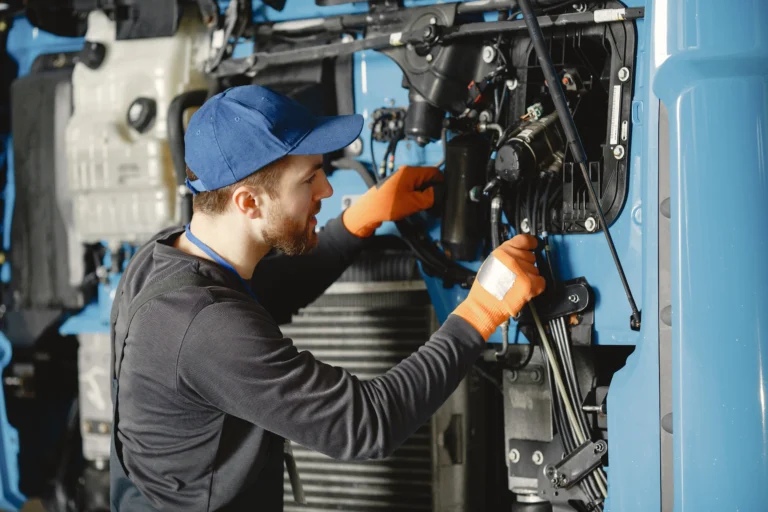The role of the transport industry in combating the shortage of diesel technicians: what should be done to solve it?
In August 2025, the American Transportation Research Institute (ATRI) published a study on the causes of deficiencies in the training, hiring, and retention of diesel technicians, a long-standing issue affecting the transportation industry. While much attention has been given to the shortage of drivers and the recent wave of retirements, little focus has been placed on technicians and the critical role they play. This shortage has a significant impact on the sector, which is being forced to implement measures to address the problem.
Some industry experts argue that the issue is not a lack of candidates, but rather a lack of truly qualified applicants. This is supported by a recent increase in enrollment in vocational training programs for diesel technicians over the past year, as reported by Transport Topics.
Shortage of qualified technicians
In 2018, the Technology & Maintenance Council of the American Trucking Associations conducted a survey among service shops, revealing that 80.8% were facing a shortage of qualified technicians.
“Qualified technicians are essential to a safe and efficient trucking industry. However, in 2025, 65.5% of shops reported being understaffed, with an average of 19.3% of technician positions unfilled,” the ATRI report stated.
According to the study published in August, 61.8% of technicians enter the profession without any formal training, which requires an average of 357 hours of additional training and $8,211 in apprentice wages to get them job-ready. Even with formal education, more than 30% of graduates from training programs were reported as unqualified in basic competency areas, according to diesel shops.
The most common barriers faced by technicians include:
- The high cost of acquiring their own tools
- Lack of prior technical knowledge
- Insufficient pay
- Inadequate on-the-job training
How can this crisis be solved? The report from the American Transportation Research Institute offers insight into potential solutions to ease this issue. Combined with expert opinions shared by Transport Topics, it provides a broader view of the actions the transportation industry must take.
Solving the diesel technician shortage
The ATRI report identifies several structural factors that hinder both the entry and retention of qualified technicians in the trucking industry. Addressing these challenges requires comprehensive solutions, including improved technical training, more competitive compensation, a better geographical distribution of educational programs, and enhanced working conditions in repair shops.
While the industry finds itself in a difficult position, trying to offer competitive wages while struggling to retain technicians after investing in their training, the economic aspect remains central to overcoming the crisis. It’s not enough to offer a decent salary; technicians also need access to the tools required to do the job. The ATRI report points out that many diesel technicians are considering positions in other industries, citing higher pay as their main motivation.
Proper training and mentorship are also key factors. Apprenticeship and mentorship programs are highly effective in retaining staff, in addition to supporting recruitment. According to the analysis, the average turnover rate among technicians who completed an apprenticeship program was 58.2% lower than the overall average technician turnover rate (6.9% vs. 16.5%).
Although there is no one-size-fits-all solution to this issue, the industry has a responsibility to recognize and adapt to the working conditions of technicians. The ATRI report provides a crucial perspective for understanding the root causes of the shortage, while also offering alternatives that can benefit both employers and technicians alike.

The best roadside attractions for truckers in the U.S.
America’s highways hide unique places that break up the routine, don’t hesitate to check out these roadside attractions along the way. The road is much

The trucker style: comfort, function, and identity
Truckers’ style is much more than workwear; it’s an identity. These are the most commonly worn garments among truckers. Truckers’ style is much more than

Chaos on Highway 61: Viral Wrong-Way Truck Video Reignites the CDL Debate
An 80-ton tractor-trailer traveling miles in the wrong direction on Missouri’s Highway 61 has reignited a nationwide debate over Commercial Driver’s License (CDL) standards, training

How technology affects driver retention
Friend or foe? 52% of drivers say technology directly influences their decision to stay with or leave a fleet. Fleet telematics company Platform Science published

Dalilah Law seeks to remove non-english speaking commercial drivers
President Donald Trump proposed the “Dalilah Law,” an initiative aimed at prohibiting undocumented immigrants from obtaining commercial driver’s licenses. On February 24, President Donald Trump

FORMULA 1 and the AI That Could Transform Transportation in the U.S.
The artificial intelligence system that Formula 1 implemented to monitor every car on every turn is opening the door to new applications in trucking, logistics,
All content and original artwork, unless otherwise noted, is protected by copyright. Saint George uses certain images under license from various licensing vendors for this purpose. Any unauthorized commercial reproduction or distribution of copyrighted materials is prohibited.


